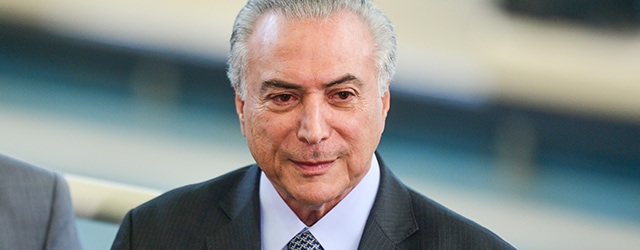Brazil’s administration faces an approval rating of only 10.3% and the unpredictable course of corruption investigations. But president Michel Temer still has a major opportunity to get Congress this year to approve his ambitious and unpopular austerity reforms of social security, labor laws, and the opening of rural land and domestic airline sectors to foreign investors.

Temer took power last August from his predecessor, Dilma Rousseff, who was impeached for budgetary irregularities.
“Temer’s administration is ready to be a reformer administration,” says the presidential chief of staff, Eliseu Padilha. “In just one year, we will deliver what has not been done in 20 years.”
The president has three tough goals ahead: to keep his majority in Congress so as to pass the reforms, to deal with the fiscal deficit and to deliver more-reasonable economic indicators at the end of 2017. According to political analysts, he already has achieved his first goal.
“This administration will bleed until its end, in 2018, because of the bribery investigations,” says Ricardo Sennes, director of Prospectiva consulting firm. “But it should not be overthrown nor lose its majority in the Congress.”
According to the Ministry of Finance, social security can sustain cuts of $250 billion in public spending over 10 years. Even if the administration’s original plan is changed significantly by Congress, Temer expects its approval by June. Planned labor reforms do not overturn the workers’ rights law, which has been in place since 1943, but will face resistance from the country’s unions.
At the same time, the Ministry of Finance is expected to send two bills to Congress to encourage foreign investment in Brazil.
The first one includes authorization for 100% foreign-controlled companies to buy up to 100 hectares for their own production, plus up to 100 more to rent. These changes could spur investment of more than $13 billion.
Another bill drafted by the government would end the prohibition on foreign airlines operating regional routes in Brazil.
Both matters are cause for disagreement inside the administration. However, Temer is ready to use his authority and well-oiled parliamentary skills to send the most liberal versions to Congress to get them approved.



